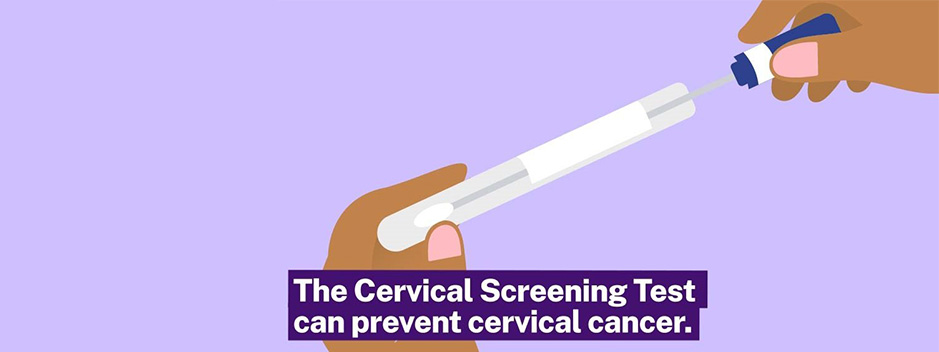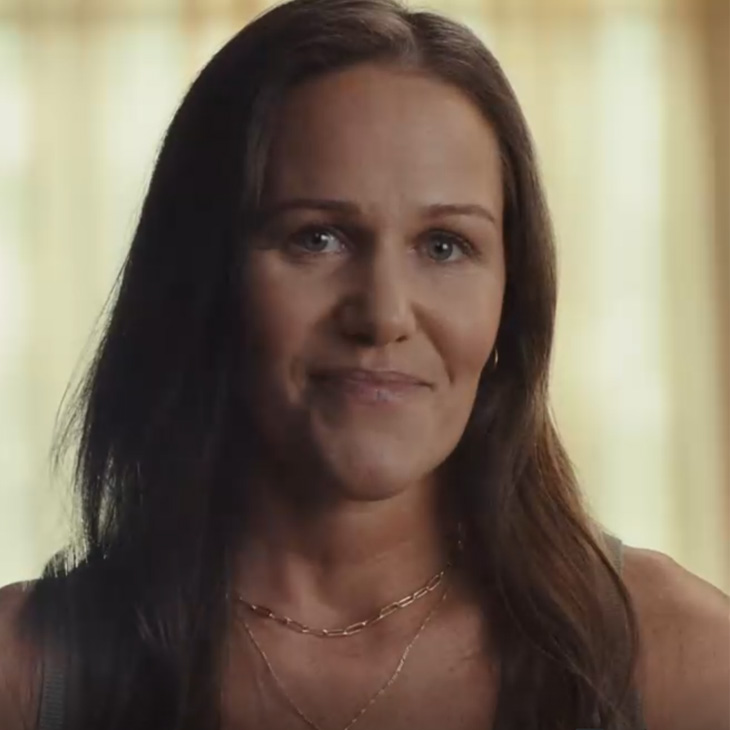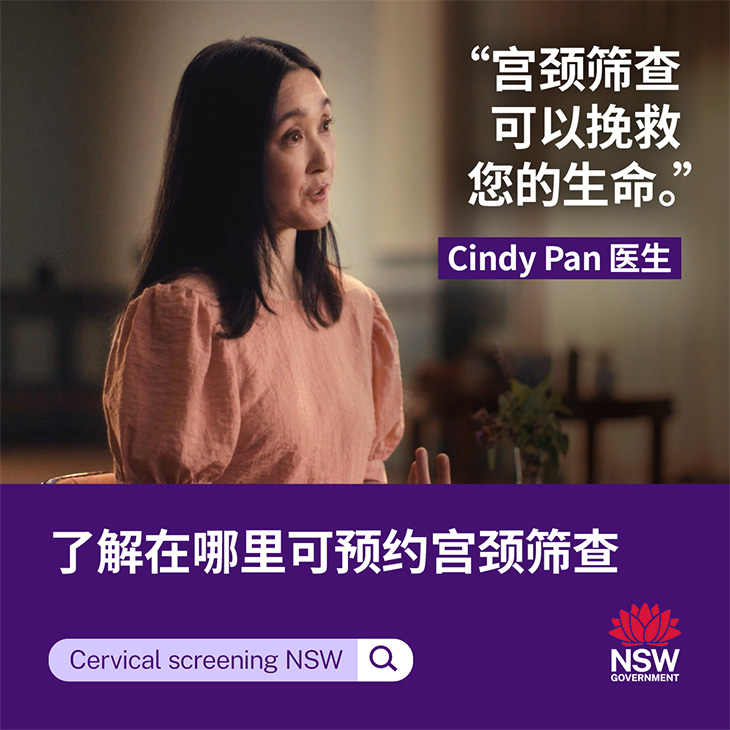2024/25 Cervical Screening Campaign

Campaign overview
Cancer Institute NSW is delivering the 2024/25 Cervical Screening Behaviour Change Campaign to motivate women and people with a cervix aged 25-50 in NSW to participate in the National Cervical Screening Program.
The campaign will run from 3 November to 14 December 2024 across a range of mass media channels, including social media (Facebook, Instagram), radio, and paid search.
Why we need a campaign
Over 300 NSW women and people with a cervix will be diagnosed with cervical cancer each year.1 While cervical cancer is not one of the top causes of cancer deaths, a significantly greater number of life years are lost due to cervical cancer as women die from this disease at a significantly younger age in comparison with other common cancers.2 The majority of cervical cancers occur in people who are lapsed or never screeners, demonstrating the effectiveness of the National Cancer Screening Program (National Program) in preventing cervical cancer.3 Despite this, the NSW participation rate in the National Program is only 59% of eligible women and people with a cervix aged 25-74.4
A cervical screening campaign has not been run by the Institute since 2014. Over the last 10 years, significant changes have been made to the National Program including changes to the test type, screening commencement and conclusion age, screening interval, and collection method options. As a result, there is a significant lack of knowledge about the National Program in the eligible screening population. Therefore, it is essential that campaign activity is delivered in FY2024/25 to total and focus populations to contribute to an improvement in cervical screening participation in NSW and ensure the elimination target of 70% is achieved by 2030.
Target audience
The campaign will target women and people with a cervix aged 30-50 in NSW, including Mandarin speaking women, and Aboriginal women and people with a cervix aged 25-45 in NSW.
Key campaign messages
Cervical Screening Test
- Women and people with a cervix aged 25-74 are recommended to do a Cervical Screening Test
- The new Cervical Screening Test replaces the Pap test and is more effective. So, you only need to do it every 5 years
Human papillomavirus (HPV) education
- Almost all cases of cervical cancer are caused by Human Papilloma Virus (HPV)
- 4 in 5 Australians will get HPV at some point in their life
- HPV can turn nasty and if it does, it can lead to cervical cancer. That’s why the new Cervical Screening Test looks for HPV
Cervical cancer
- 1 in 3 women who get cervical cancer will die from it
Self-collection
- You can now choose to do the Cervical Screening Test yourself
- You do the test yourself, in private at a medical centre
- It’s a simple process. You insert a cotton swab just a few centimetres into your vagina
- It’s as accurate as the test done by a doctor or a nurse
Key call to action
- Find out where to book a Cervical Screening Test
- Learn more about the Cervical Screening Test
- Speak to a doctor or nurse about the Cervical Screening Test
Campaign assets
The 2024/25 Cervical Screening Campaign uses motivating, informative ads to educate NSW women and people with a cervix aged 25-50 about cervical cancer and cervical screening. The ads aim to encourage this target group to do the Cervical Screening Test when due.
About Cancer Institute NSW
We are NSW’s cancer control agency, established under the Cancer Institute NSW (2003) Act to lessen the impact of cancer across the state. Our vision is to end cancers as we know them. The Institute is the lead agency to coordinate efforts in implementing the NSW Cervical Screening Program, a comprehensive approach to reduce deaths from cervical cancer by detecting the early signs of the disease.
Further information
Contact us directly at CINSW-CervicalScreening@health.nsw.gov.au
1. Cancer Institute NSW. (2024). Cancer statistics NSW webpage (based on 2019-21 data): https://www.cancer.nsw.gov.au/research-and-data/cancer-data-and-statistics/cancer-statistics-nsw#//analysis/incidence/ Accessed: October 2024
2. Australian Institute of Health and Welfare. (2017). Burden of Cancer in Australia: Australian Burden of Disease Study 2011. Australian Burden of Disease Study series no. 12. Cat. no. BOD 13. Canberra: AIHW, p.11. https://www.aihw.gov.au/getmedia/a1aec7bd-ddb7-416f-9a7e-f2133cd5d4cb/20965.pdf.aspx?inline=true.
3. Australian Institute of Health and Welfare (2019). Analysis of cervical cancer and abnormality outcomes in an era of cervical screening and HPV vaccination in Australia, p. v. Cancer series no. 126. Cat. no. CAN 129. Canberra: AIHW. https://www.aihw.gov.au/getmedia/479cc5bb-d698-4ff7-92fa-4be451b1897b/aihw-can-129.pdf.aspx?inline=true
4. Australian Institute of Health and Welfare. (2023). Cancer screening programs: quarterly data, Cervical screening participation: https://www.aihw.gov.au/reports/cancer-screening/national-cancer-screening-programs-participation/contents/national-cervical-screening-program/participation Accessed: October 2024




